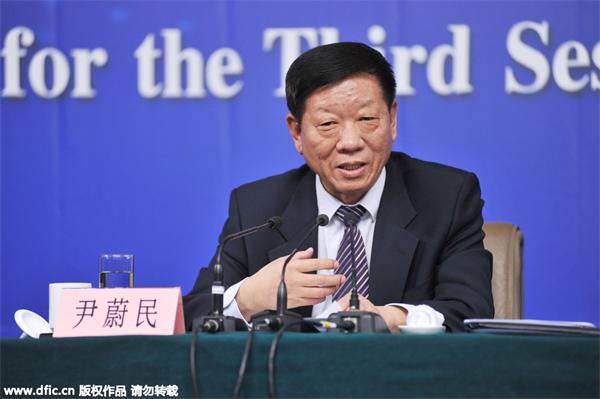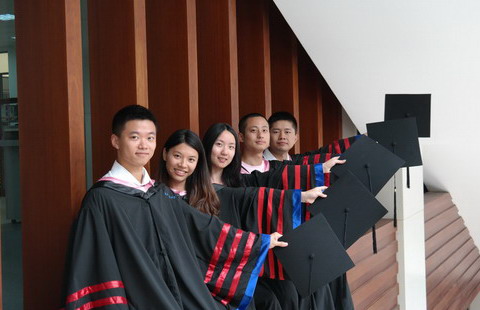Social security reform needed so benefit exceeds cost for workers
(China Daily) Updated: 2015-05-21 07:53
 |
|
Yin Weimin, Minister of Human Resources and Social Security, speaks at a press conference during the Third Session of the 12th NPC (National People's Congress) in Beijing, China, 10 March 2015. |
Reports show that on average social security payments account for about 46 percent of a Chinese worker's salary, which is the 13th highest percentage among 173 nations. Comments:
The contradiction in China's social security, namely the high cost and low return, is caused by the unfairness in the system. For example, the State doesn't invest enough and relies mainly on collecting money from workers, while those paying more do not get a larger pension; the unfairness discourages many workers from joining the system, which in turn increases the burden of participants.
Beijing Youth Daily, May 19
The authorities rely on the average salary to decide how much one has to pay for social security, but this figure is mainly derived from the salaries of those workers who are formally employed and does not include migrant workers, who in general get lower pay. For many workers the cost of getting an old pension is too high that they want to save the money for current use; the authorities need to change this.
Qiao Jian, a professor at the China Institute of Industrial Relations, May 20
The low return and high cost have discouraged many from paying for social security, which enlarges its deficiencies. An ordinary worker in Beijing has to pay about 1 million yuan ($161,200) for social security over lifetime, but the pension he/she gets after retirement is rather low. It is necessary to grant citizens more convenient ways of cashing their social security fund so that the benefit exceeds the cost.
Changsha Evening News, May 19
About 40 million government and State-sponsored employees do not pay for social security, yet they receive a high pension when they retire; that's a heavy burden on ordinary workers and is one of the reasons for the high cost. The central leadership is trying to reform this by incorporating some State workers into a unified system and we hope the move will improve the situation.
Zhang Juwei, a researcher at the Institute of Population and Labor Economics, Chinese Academy of Social Sciences, May 20











